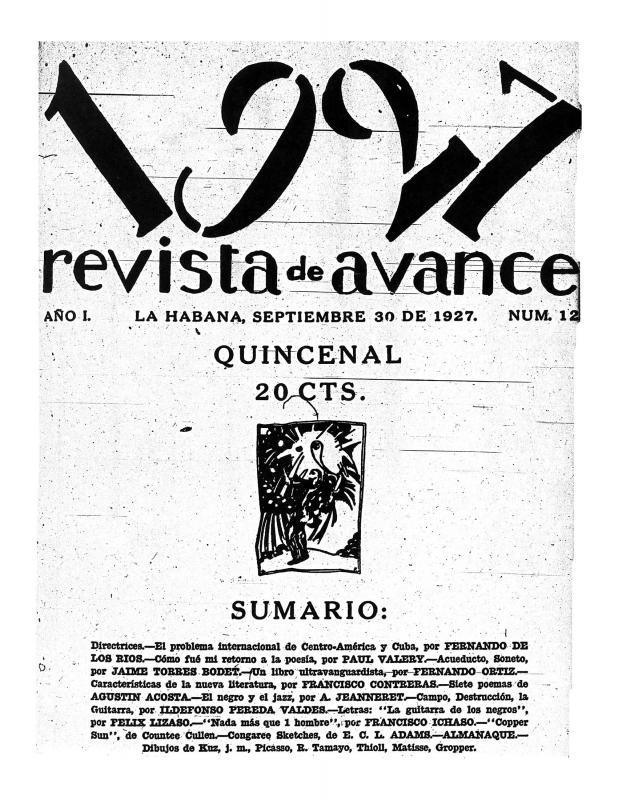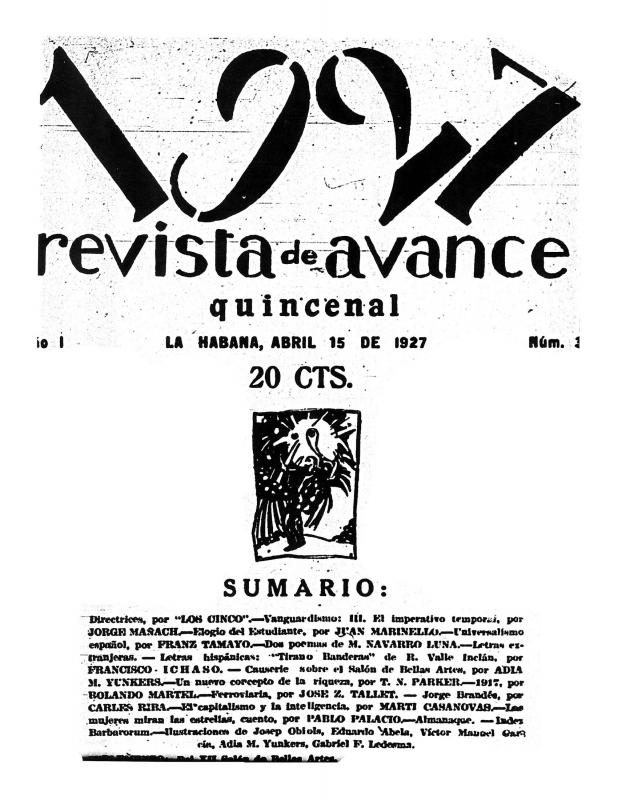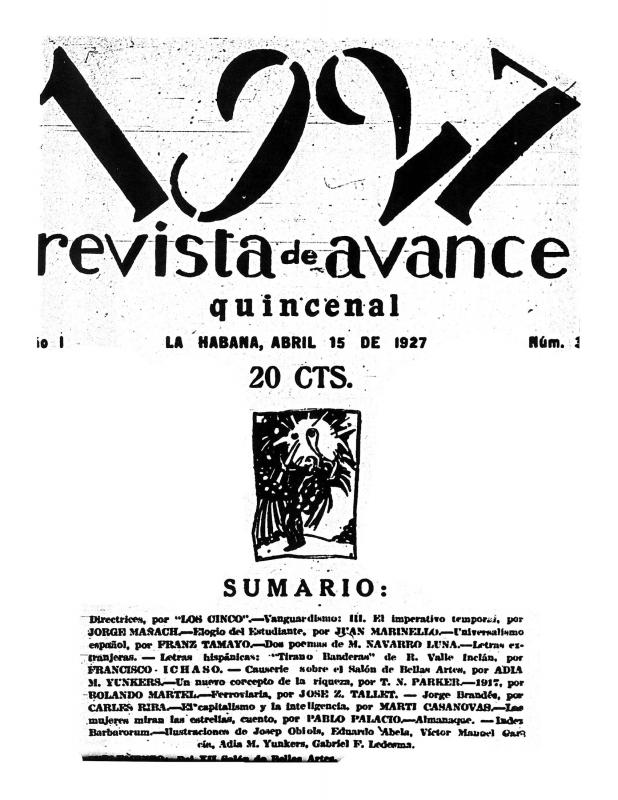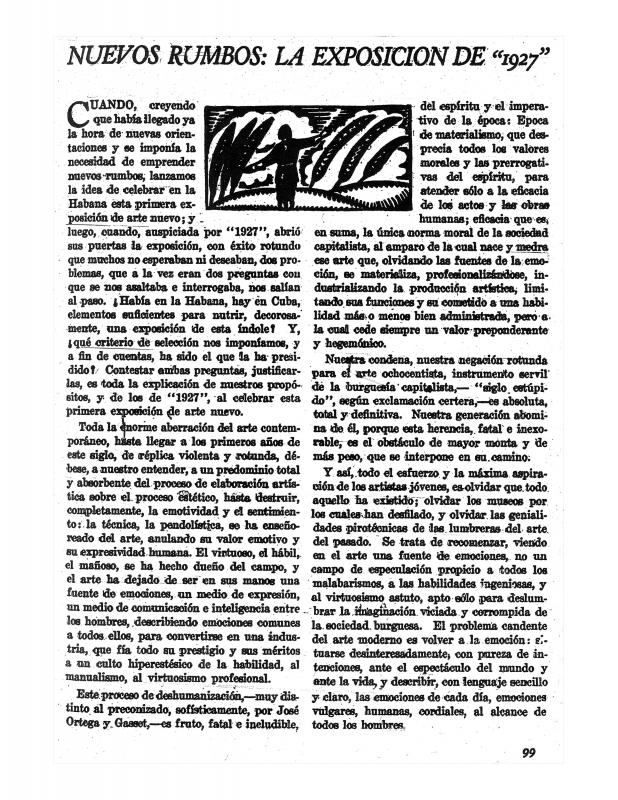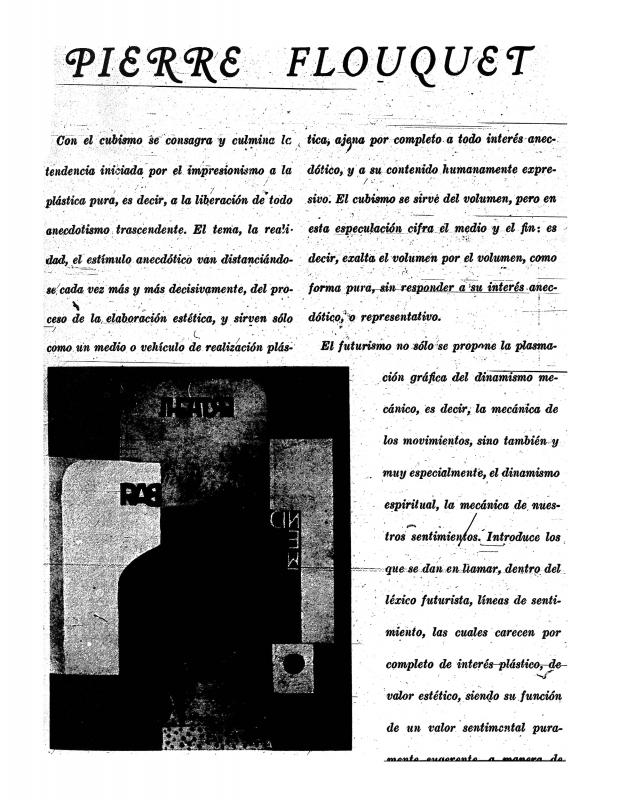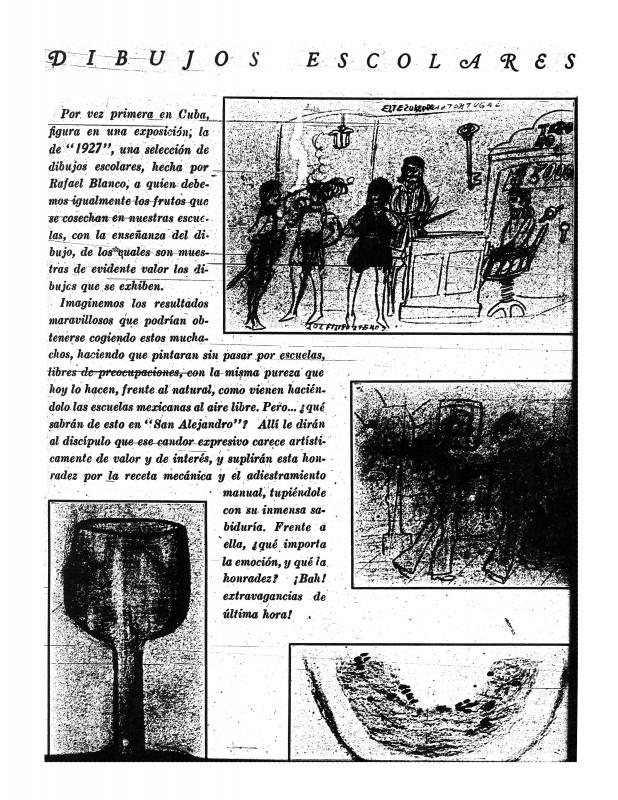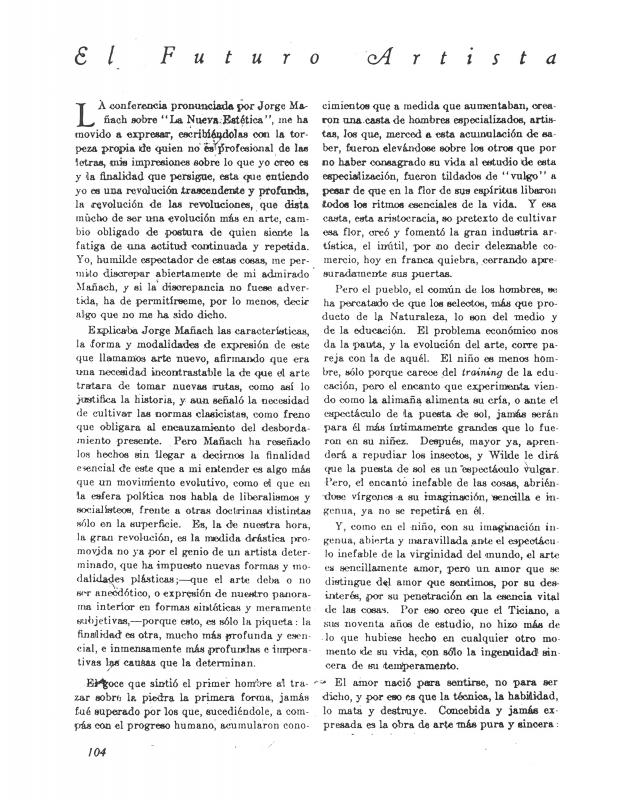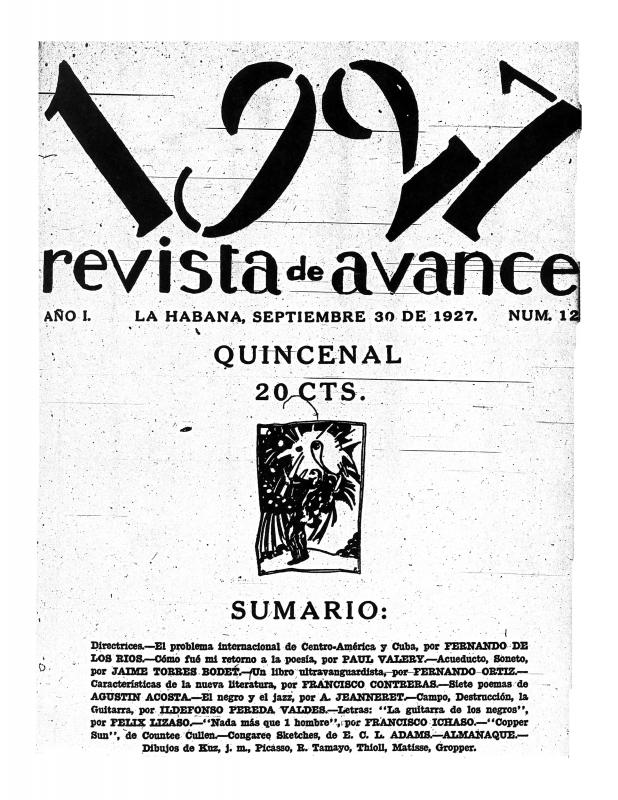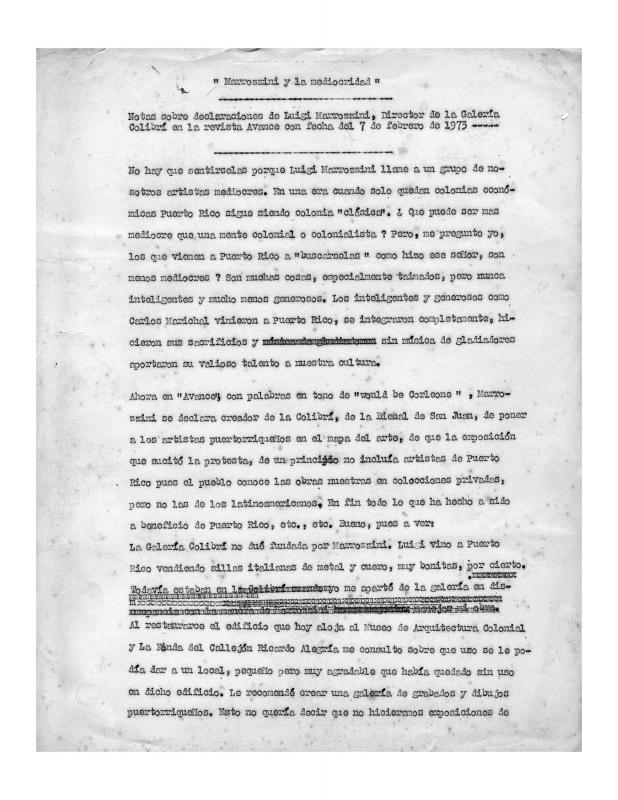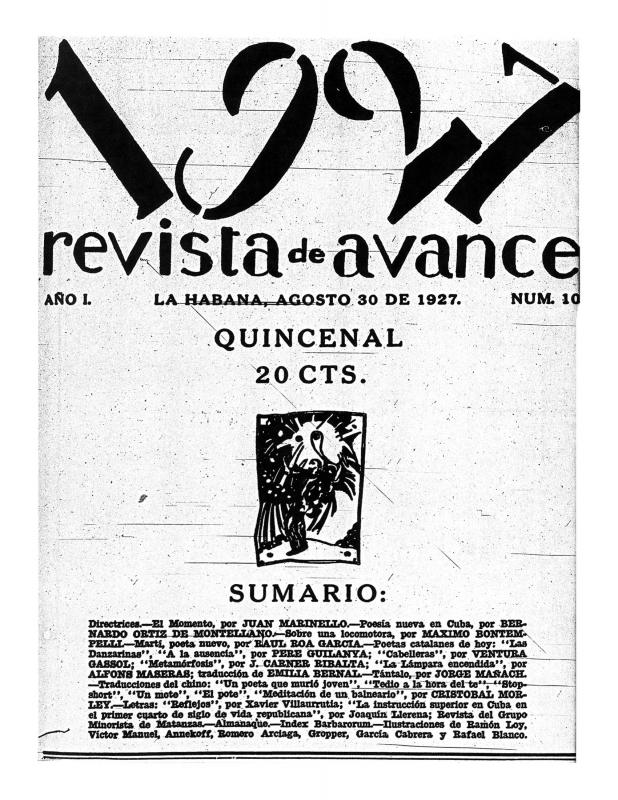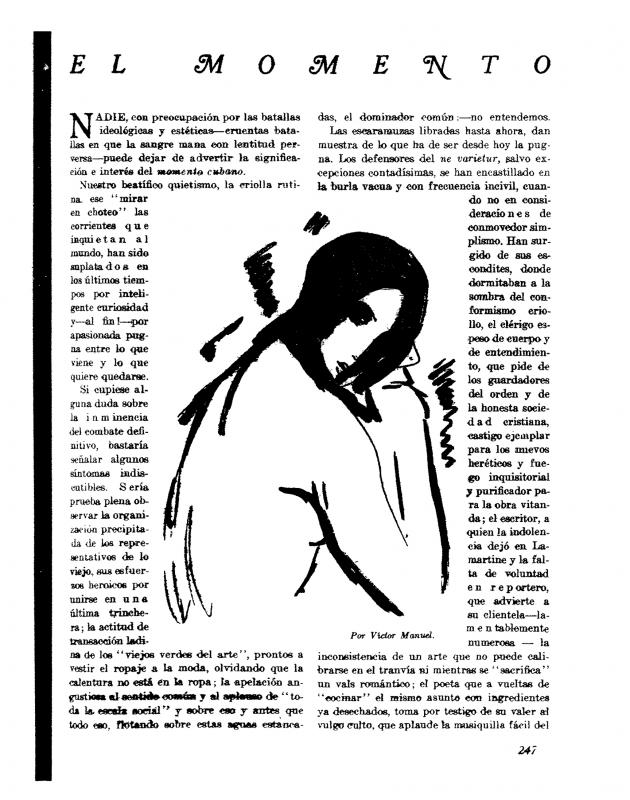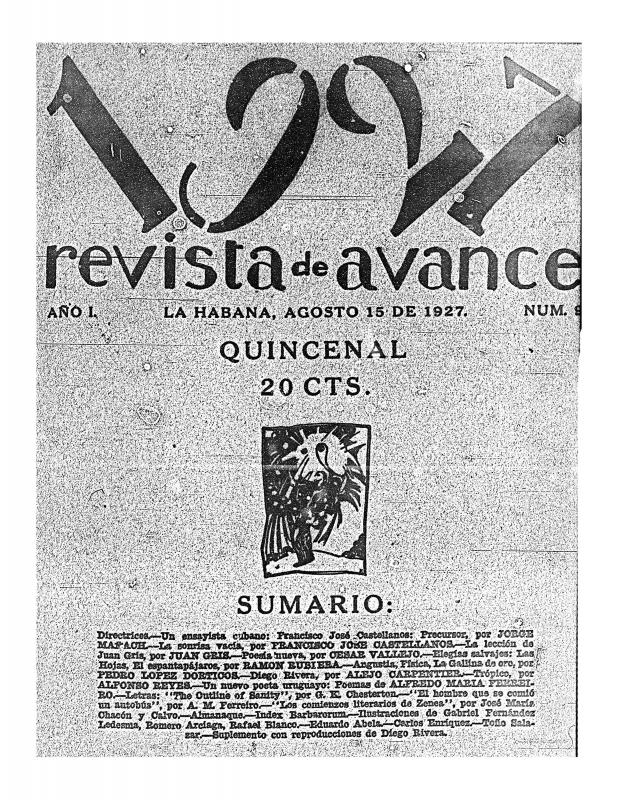Juan Marinello was one of the most important intellectuals in Cuba and one of the most distinguished public figures in Cuban political struggles. He studied law at the University of Havana, was one of the participants in the The Protest of the Thirteen and a member of the Grupo Minorista. Marinello had a basic role in the advance of the intellectual avant-garde and the development of the concept of a national culture and identity. Along with Mañach’s work, the research Marinello did on the life and work of José Martí was considered important; this research established the poet as the originator of authentic Cuban thinking. The contributions of his thinking to literary and art criticism, which informed the development of the theory and practice of art in Cuba, reflected his belief that aesthetics and ethics are inseparable. In the article, Marinello points out the problem faced by an intellectual who is integrated into a system in which ideas are capitalized. The writer’s own ideas reflect Marxist theories, especially those proposed in Das Kapital, in which the philosopher set forth the new power relationships that were arising from those systems. To Marinello, intellectual practice is an ethical job through which the individual freely expresses his ideas and opinions. Referring to both the capitalist and the communist systems, the writer contends that this practice conflicts with any system in which ideas are bought and sold due to the vital necessity of survival. Marinello therefore proposes that the problem of the intellectual is “insoluble,” due to the modern systems of production and trade. What is not clear is whether the Cuban intellectual identified the root of the problem in the displacement of ethics by the value of capital, or the fact that capital was becoming the equivalent of a basic need. [For other essays and texts published in Revista de avance, see the following in the ICAA digital archive: “Índice del Tomo I (Números 1 al 12 inclusive)” (anonymous) (doc. no. 1300106); by Martí Casanovas “Almanaque” (doc. no. 1299709), “Almanaque: Exposición Gattorno” (doc. no. 1298711), “El capitalismo y la inteligencia” (doc. no. 1299384), “Nuevos Rumbos: La exposición de ‘1927’” (doc. no. 1280155), and “Pierre Flouquet” (doc. no. 1299881); “[El arte nuestro debe ser instintiva o intuitivamente americano...],” by Víctor Andrés Belaúnde (doc. no. 832310); “[Basta con que revele una honda...],” by Carlos Préndez Saldías (doc. no. 832258); “Causerie sobre el Salón de Bellas Artes,” by Adia M. Yunkers (doc. no. 1298799); “[Creo que el artista americano...],” by Ildefonso Pereda Valdés (doc. no. 832328); “Dibujos escolares” (anonymous) (doc. no. 1299805); “Diego Rivera,” by Alejo Carpentier (doc. no. 1299962); “Eduardo Abela: pintor cubano,” by Adolfo Zamora (doc. no. 1280283); “El futuro artista,” by Eduardo Abela (doc. no. 1299789); “El prejuicio en el ritmo intelectual de las épocas,” by Francisco Ichaso (doc. no. 1299741); “El problema internacional de Centro América y Cuba,” by Fernando de los Ríos (doc. no. 1300090); “La cuestión del negro” (anonymous) (doc. no. 1280299); “La lección de Juan Gris,” by Juan Gris (doc. no. 1299946); “Marrozzini y la mediocridad: notas sobre declaraciones de Luigi Marrozzini,” by Lorenzo Homar (doc. no. 861634); “Martí: Poeta Nuevo,” by Raúl Roa García (doc. no. 1300003); “El momento,” by Juan Marinello (doc. no. 1125671); “Nacionalismo y Costumbrismo,” by Severo García Pérez (doc. no. 1300058); “Nacionalismos en América,” by Eugenio d’Ors (doc. no. 1299757); “Nota de los 5—2,” by Jorge Mañach et al. (doc. no. 1299930); “Programa de criolledad,” by Félix Lizaso (doc. no. 1125414); and “Vértice del gusto nuevo,” by Jorge Mañach (doc. no. 832383)].

